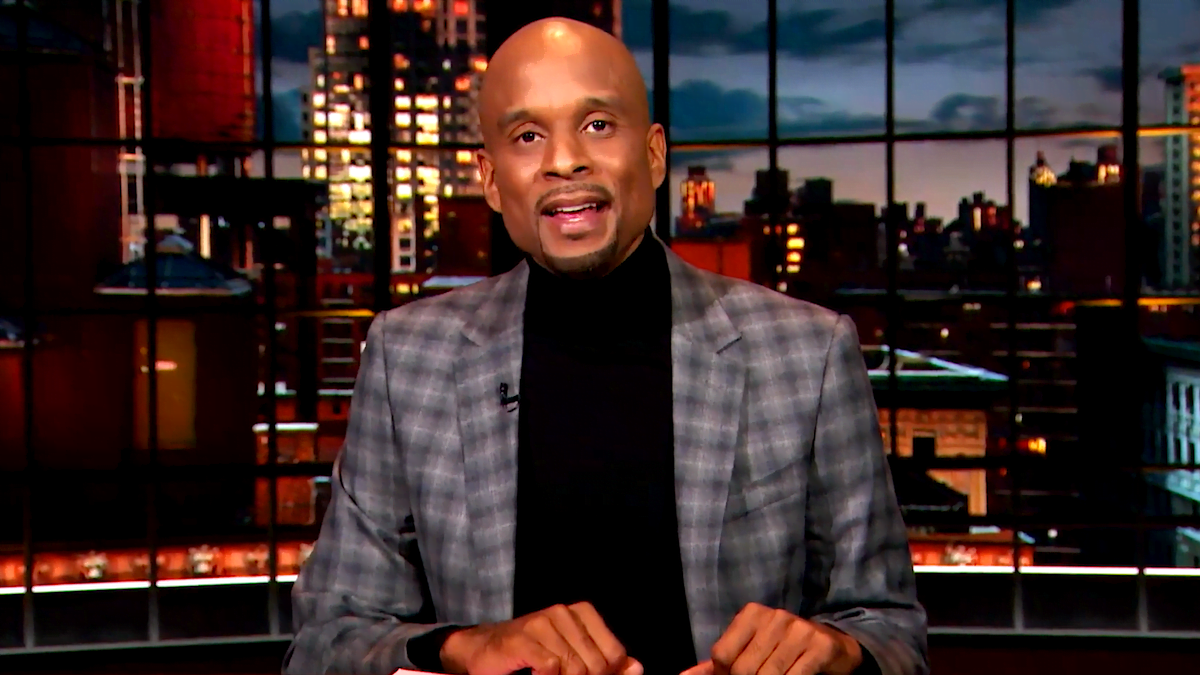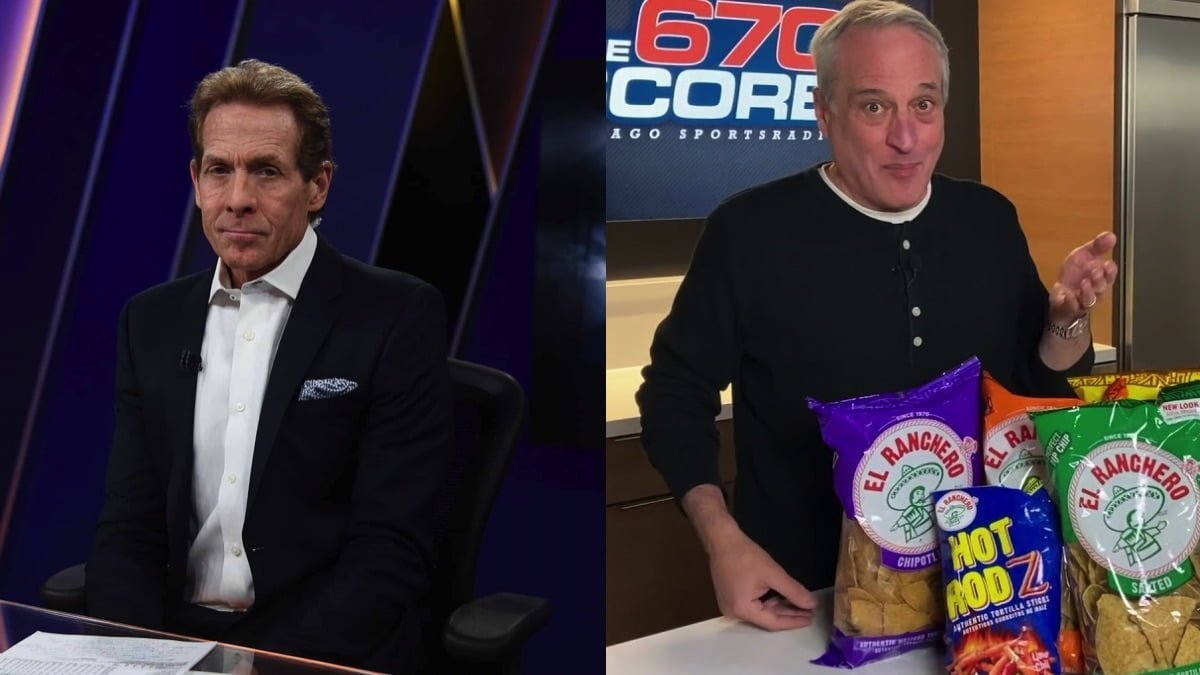HBO’s second season of Game Theory with Bomani Jones debuted Friday night in a new timeslot and with a different lead-in than the show’s initial six-episode run last spring.
Game Theory now follows the popular Real Time with Bill Maher, which may not have the pop culture resonance of a prestige TV series like The Last of Us but is similar in content, tone, and intent. More viewers also tend to watch Maher’s program on Friday night because of its topicality with current events than a serialized show that people can watch at their convenience or perhaps even wait to binge-view later.
Bomani Jones also returns with his show during a more exciting, more engaging time on the sports calendar during the NFL playoffs and the lead-up to the Super Bowl. That allows the show to establish itself, register with viewers, and find its footing as attention turns toward the climax of the college basketball and NBA seasons.
(Season 1 launched last year approximately a month after Super Bowl LVI, when many sports fans might be taking a breather after devoting five months of Thursdays, Saturdays, Sundays, and Mondays to football. And as popular as March Madness can be with diehard and casual fans filling out brackets, it doesn’t draw the same intense interest and devotion that the NFL does. Nor does the beginning of the NBA and NHL playoffs, or the Major League Baseball season.)
Whether or not those scheduling changes benefit Game Theory will be seen in the weeks to come, of course. (Season 2 is scheduled to run for 10 weeks.) But viewers returning to the show or watching for the first time will see a more confident production that carries itself like something that belongs on HBO, not lucky to be there or experimenting with late-night sports content.
Friday’s debut episode began with “people on the street” interviews, a feature that sets Game Theory apart from its sports media peers by talking with people and getting their thoughts, not talking at them. We don’t see much of the average person on sports TV. And some of the people Jones talks to aren’t even sports fans. Either they’re entertaining or they provide an opportunity for Jones to say something smart and funny.
(Well, OK — in the opening segment, Jones dominated the conversation by talking about the current lack of fighting in the NBA compared to the 1980s. But the topic, along with the black-and-white photography, was attention-grabbing for anyone who either just left their TV on HBO after Real Time or was deciding whether to watch or not.)
Following the intro, Jones took full advantage of Game Theory airing in January by talking about the NFL — particularly the success of mobile quarterbacks in the playoffs and Tom Brady struggling because he’s afraid to get hit at this point of his career. Maybe that first point was hurt a bit by Josh Allen and Daniel Jones losing over the weekend, but the larger observation of how NFL quarterback play has evolved definitely still applies.
The centerpiece of Game Theory‘s Season 2 debut was an essay on the apparent advent of player empowerment in the NBA. At first glance, it appears that players control the path of their careers more than they ever have. But do they really? NBA stars have pushed to be traded to better situations or for their teams to make impact additions in recent years.
Yet as Jones points out, these players don’t really have more authority over their careers than their predecessors. LeBron James might embody the idea of player empowerment, but the Los Angeles Lakers currently hold the No. 12 standing in the NBA’s Western Conference, four spots back from a playoff seed.
Sure, LeBron is being paid $44 million this season and his impending free agency puts the Lakers’ front office on notice to build a championship team around him. But those circumstances work well for him. He hasn’t elevated the power of his fellow players. With astute observations, Jones pulls pieces out of the “player empowerment” until it collapses.
Yes, Jones has far more time than his sports TV peers for in-depth commentary that explores an issue, highlights facts, and dismisses presumptions. It’s similar to how John Oliver can take a deep dive into a topic like housing discrimination on Last Week Tonight, rather than moderate a two-minute exchange between panelists arguing either side. Providing Jones with that platform is Game Theory‘s strength.
Season 2’s debut episode wasn’t perfect. FS1’s Nick Wright is entertaining but didn’t make for as strong an interview as previous guests including Stephen A. Smith, Roy Wood Jr., and Dawn Staley. Bringing on a fellow TV pundit nudged the segment close to what’s seen on daytime sports TV. And it might have been fun to see a segment like last season’s “The Boys in Blue” comedy sketch about Mike Krzyzewski’s legacy at Duke.
But it’s probably smart for Game Theory not to show everything while opening a new season. Save something good for later. Keep the viewers coming back for more. What seems most assuring about this second season after watching one episode is that the show is finding its voice.
Programs like this always evolve. Longtime Bill Maher fans might remember that Real Time used to have stand-up comedy segments and commentary from Paul F. Tompkins. But the show whittled itself down and became stronger for it. Last Week Tonight had to set itself apart from Oliver’s previous gig on The Daily Show. Fortunately, HBO is giving Jones the opportunity to define a late-night sports program and he’s not dropping the ball.
Ian Casselberry is a sports media columnist for BSM. He has previously written and edited for Awful Announcing, The Comeback, Sports Illustrated, Yahoo Sports, MLive, Bleacher Report, and SB Nation. You can find him on Twitter @iancass or reach him by email at iancass@gmail.com.








